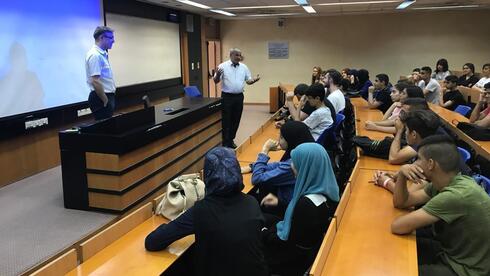
“I sent dozens of resumes and no one came back to me.” So says Antonio Benedetto, 25, from East Jerusalem, a graduate of software engineering at Azrieli College, who tried to do the trivial thing after several years of intensive study and find a job in the high-tech industry. But in the most prestigious industry in the country, the chances of an Arab entering the country are extremely low.
The high-tech industry in Israel has a total of 320,000 employees and only 6,400 Arab employees. The representation of the Arabs in it stands at 2.1%, although their share in the general population is ten times. “This is even a lower rate of less than one and a half percent, if you look at the representation of Arabs in technological and quality positions and not in shell positions,” says Matti Zweig, CEO of Scale-Up Velocity, from Start-Up Nation Central.
6 View the gallery
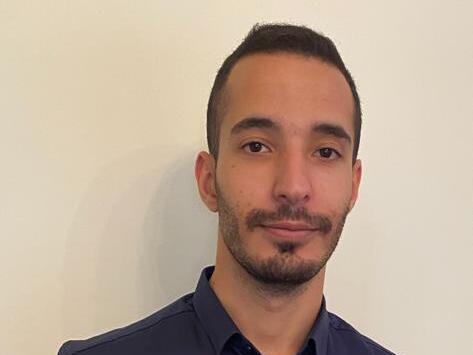

Antonio Benedetto
“This is a very bad situation and the data is dramatic. The industry that leads the Israeli economy is composed almost exclusively of non-Haredi Jewish men, and this is unlikely in terms of the state’s resilience and its ability to grow and strengthen.”
One of the burning issues in the Israeli employment market, which is still far from recovering from the corona crisis, is the shortage of skilled workers for the high-tech industry – the one that put Israel on the map in technology and innovation and made us what we like to call the “start-up nation”.
However, as with many other burning issues that require complex and long-term solutions – the government is aware of the problem (hereinafter the last auditor’s report) and yet is in no hurry to change the situation. This is an industry that brings in 12% of GDP. 46%) of exports from Israel and brings into the country billions of taxes. Thus, the proportion of workers in the high-tech industry from all populations except Jewish-non-Haredi men remains very low.
Benedetto graduated with a degree in software engineering about a year ago after a challenging period of study. “I started studying with my twin brother, and in the first year we learned Hebrew and after that we continued to study software,” says Benedetto. “During the degree it was difficult for the family to finance both of our studies, so my brother retired and went to work as a bus driver. That is what allowed me to continue the degree.
“During my studies I tried to look for jobs for students in the field, I sent resumes to a lot of companies, not only in Jerusalem but also in Tel Aviv and the whole region, but no one came back to me. I felt there was something like a wall that prevents me from finding work. I was quite discouraged. The degree studies and return to work on renovations, “he says.
To Benedetto’s delight, just before he retired, he heard about the Excellenteam course, which is intended for undergraduates in computer science from the ultra-Orthodox and Arab societies, and aims to integrate populations that are under-represented in high-tech.
6 View the gallery
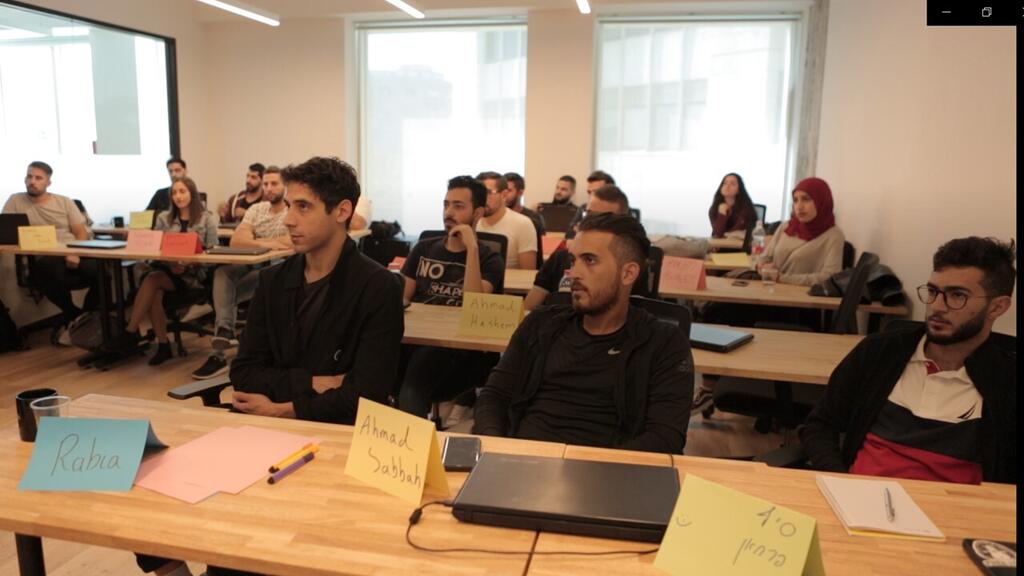

Excellenteam program for integrating populations with under-representation in high-tech
(Photo: Courtesy of Scale-Up Velocity)
“Because I come from the high-tech industry, I am intimately familiar with the difficulty of recruiting, especially of talents from under-represented populations,” says Zweig, CEO of Scale-Up Velocity at Start-Up Nation Central, where the course is held. “First and foremost our goal In these courses it is to solve the shortage, so that companies do not have to go to India or Eastern Europe to get labor, when we have in the country a huge number of talented people who do not find work even after graduating. It is a terrible waste of resources for the state, because the state has invested in the same people in high school as well as in academic studies, and in return they return to work in non-high-tech jobs at low wages.
“The idea was to create a program where we do not compromise on the level of those people who come to the course, but bring quality people through a significant screening process for graduates, and direct them to high-tech positions where there is a shortage of staff. Similar programs exist for women, ultra-Orthodox, etc.”
Zweig explains that the barriers of high-tech candidates from Arab society begin with the cultural gaps between them and the interviewers from the companies and their difficulty in the Hebrew language, and continue with the lack of networking of workers from the Arab sector and their low self-confidence. “It’s a bit like in the case of women, when those workers think they will not be accepted in advance and therefore there is no point in making an effort. Besides, workers from Arab society have difficulty with soft skills.
6 View the gallery


Mati Zweig, CEO of Scale-Up Velocity from Start-Up Nation Central
(Photo: Micha Loveton )
“This problem has worsened in Corona, because it is very difficult for those candidates to convey their messages in a zoom job interview. Candidates from Arab society are often very shy, not always active in the interview. If you ask them a question they have not encountered, as they often do in high-tech interviews. “To see how the interviewee handles the question and how he will deal with it in teamwork, so verbal communication is super-important. Interviewees from Arab society do not always try to deal and answer many times that they do not know.”
Zweig adds that “we also encounter a bit of excessive respect from Arab candidates towards employers, which is also exacerbated by the use of zoom. Candidates do not want to do things that in their culture are interpreted as cheeky, but in the interviewer’s culture they are expected to indicate kind of boldness or creativity. “The interviewees try to be very modest and not stand out, and thus the gap between the two cultures harms their chances of being hired.”
The Excellenteam course was built in collaboration with companies from the high-tech industry, including Mobilai, IBM, Google and others, to understand what those companies expect from candidates who have completed a bachelor’s degree and want to join them. Benedetto says that during the course, he had a mentor from Google who helped him understand what he needed to improve in order to integrate into the industry, “and in addition we did projects with other large companies, which I could present in the job interview I did as experience in the field.”
Another problem that hinders the full integration of Arabs in the high-tech industry is also mentioned in the latest State Comptroller’s report, which stated that the gap still exists in schools. The high-tech fields in academia, therefore the large gaps between the sectors in the proportion of students examined in these subjects in the school should be reduced.
Meanwhile, there are a number of organizations and initiatives in the field that are trying to change the picture among the boys and girls, who are in fact the next generation of the high-tech world. Yosef Jabrin, director of the High-Tech Flowers and Challenges Program at the Givat Haviva Joint Society Center, says that “for the past six years we have been running an academic program leading to a bachelor’s degree in computer science for middle school and high school students from Arab society.”
The same program is designed for outstanding eighth-graders, who will teach for five years the courses needed to graduate at age 19 with a degree in computer science, and try to integrate into industry.
6 View the gallery
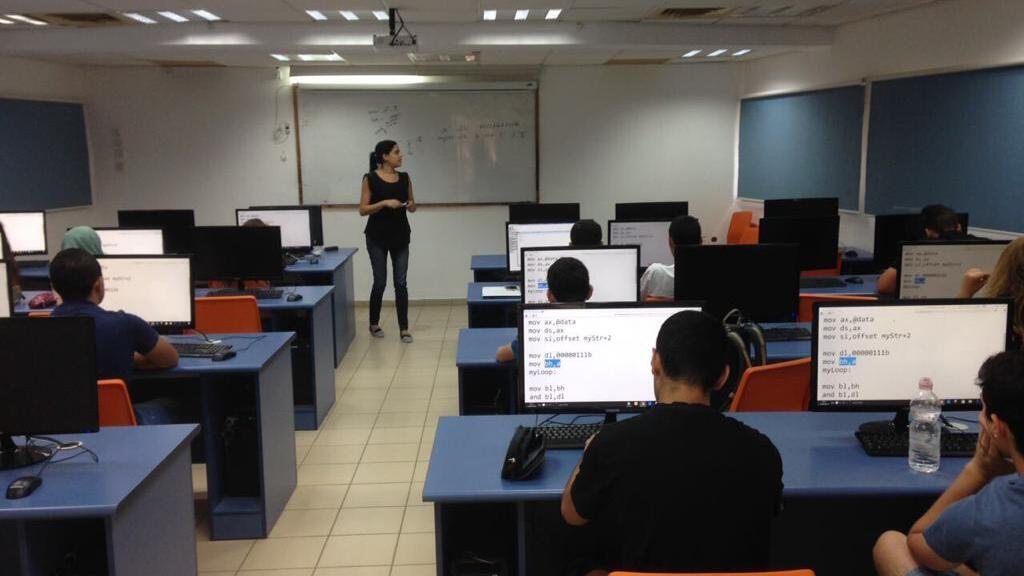

High-tech flower classes of the Givat Haviva Joint Society Center
“Apart from filtering grades and tests that students are required to take, we maintain with them and their parents a coordination of expectations of what undergraduate computer science studies are all about, because it should be understood that many of them do not know at all what they are about. The incessants in particular, “says Jabrin.
6 View the gallery
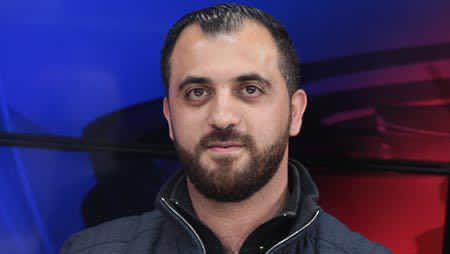

Yosef Jabrin, Project Manager of High-Tech Flowers
According to him, the whole issue of awareness of learning, which is directed at the high-tech field in Arab society, is flawed. “I go around a lot in schools and what I see is that the students at first do not know what I am talking about. In Arab society parents want their children to be doctors, lawyers, engineers, but less focused on high-tech professions. Beyond that, in Arab society schools hardly. “Computer science is taught at a programming level. The young elementary students are also barely exposed to the field and of course there are not enough high schools that have the opportunity to expand their studies in the field of computer science. The children from Arab society do not dream of high-tech.”
Jabrin also points to the barrier of language, which is especially noticeable among young students who come to his programs when they are only 14-15 years old. “The students who come to us receive three semesters of adaptation to academic studies, which also include Hebrew studies. The level is very high in these studies anyway, and when a lecturer speaks Hebrew it is very difficult to follow, even older students who know the language.”
6 View the gallery
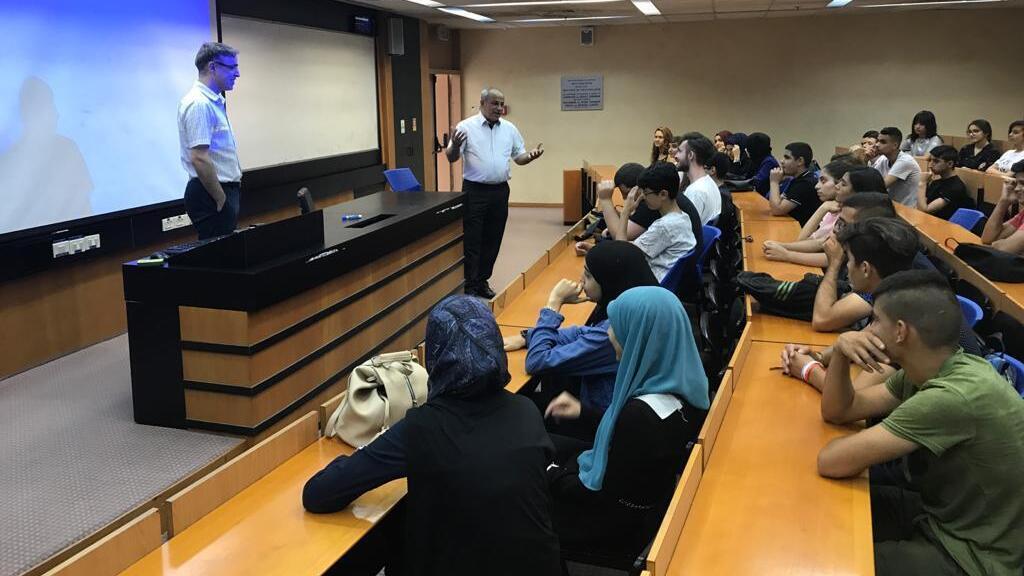

Meeting of high-tech flower participants with Prof. Hossam Hayek
Another significant challenge that prevents many students, he says, from eventually being accepted into the workplace, is that most of them study in colleges rather than universities. “The degree at the university is more valued among companies, but young Arabs usually go to colleges for two reasons: firstly because many of them have to combine work alongside studies, because most come from not very strong economic backgrounds, and university studies are more intensive and not always allow to work in parallel. The second reason is that most of the Arab population is located in the periphery, where there are mainly colleges. It is less common for young people to move to cities in the center of the country, and usually stay where they grew up. This also connects to difficulty getting hired because most high-tech companies are in Tel Aviv The Arabs are in the north, “says Jabrin.
He said, “The government talks a lot but in practice it does not. We came to the Knesset many times, both with the CEO of Givat Haviva and with our outstanding student from Pardis, and in the end nothing came out. In my opinion, high-tech companies also need to be flexible in our direction and find ways to integrate graduates from Arab society into industry, and of course the state must also find solutions to the situation. ”
What is clear is that as the issue is neglected and the percentage of employees in Arab high-tech society remains small, the gap will only widen. However, the same thing can happen in the opposite situation – Benedetto, for example, who was hired by Ex Libris after the course, demonstrates how every employee who enters the industry contributes to changing the entire trend. “Thanks to my success my brother decided to go back to school and next year he will finish his degree. Beyond that I met a lot of Arabs at the college who told me that because they see I was accepted and I work in a good place – they hope to continue high school and they believe they will succeed in industry.”